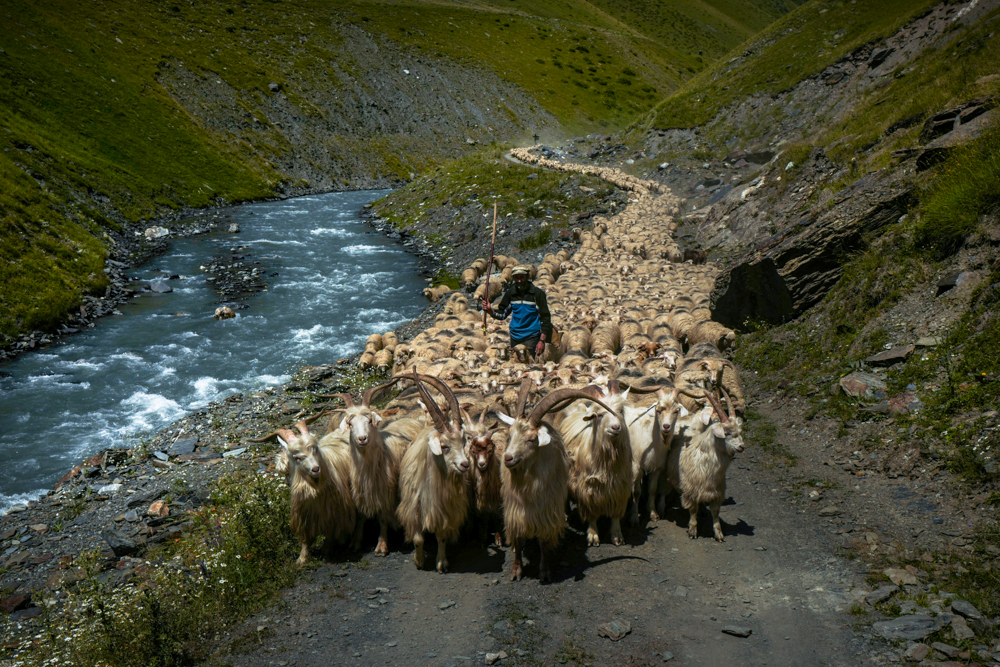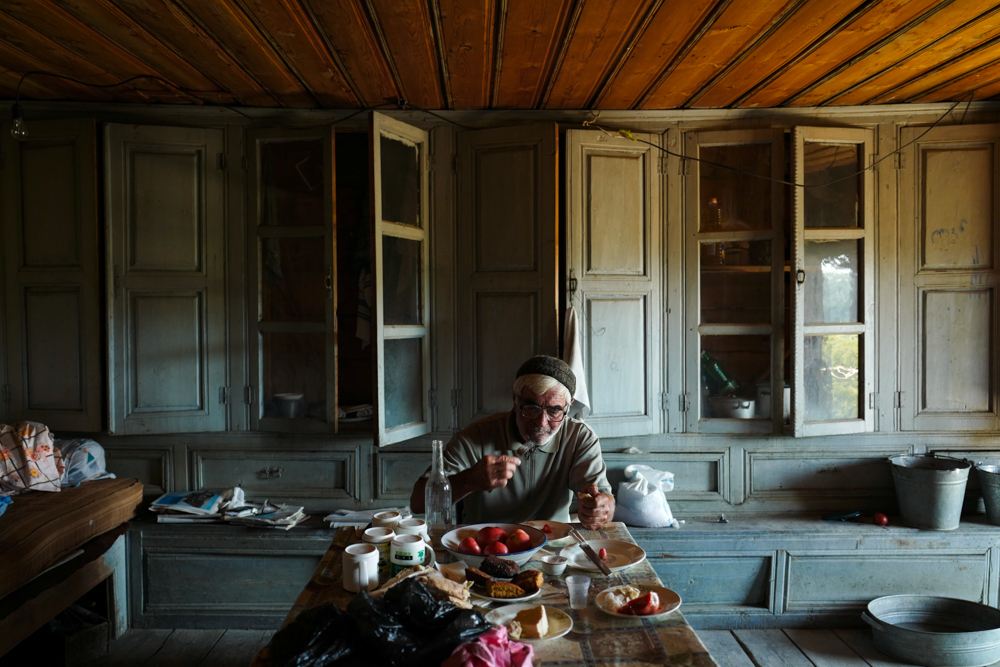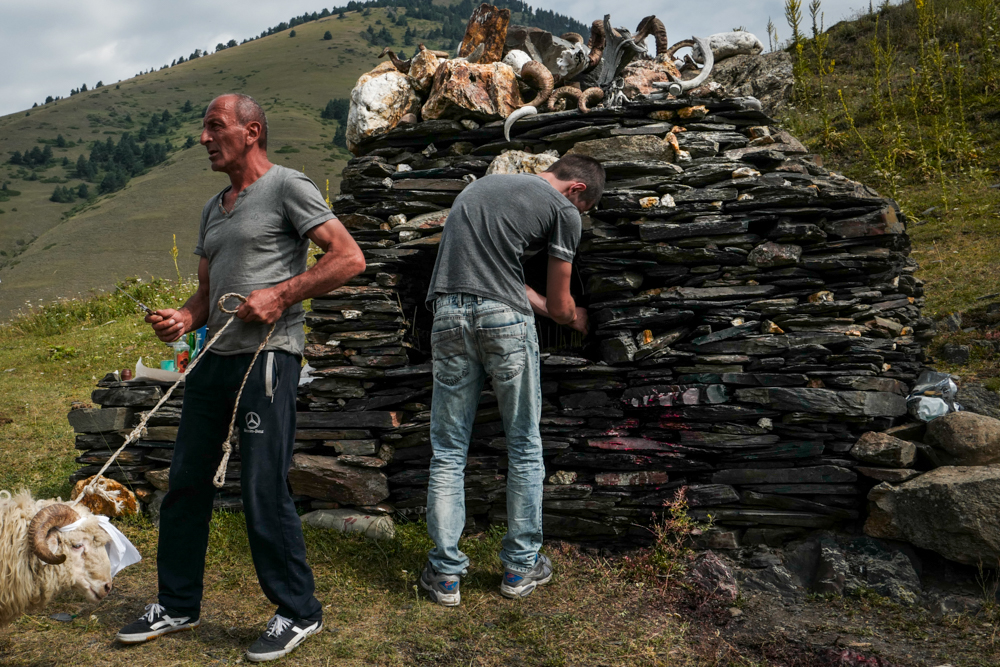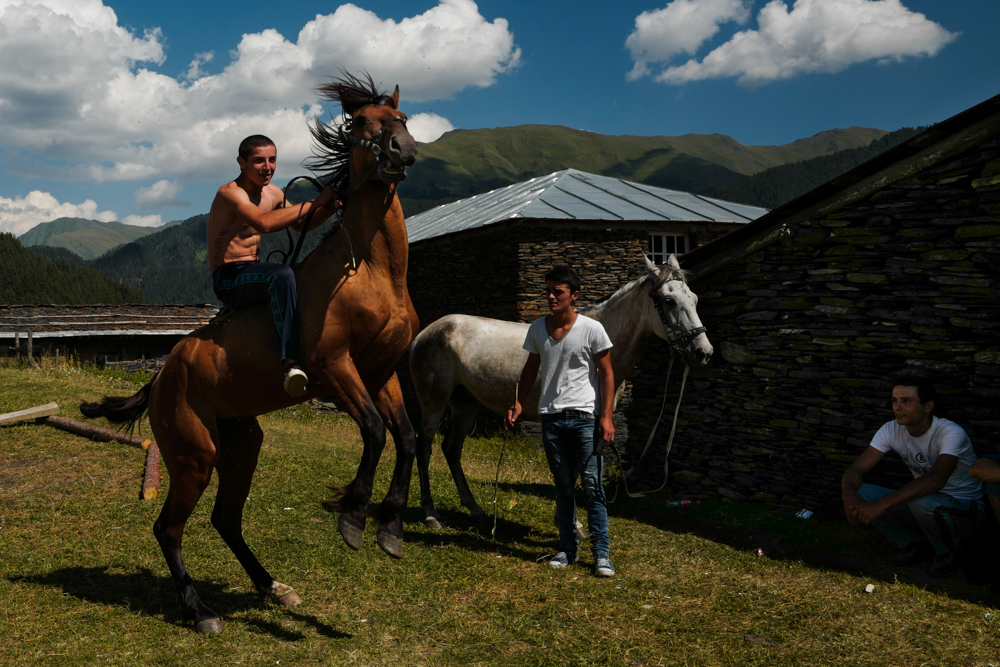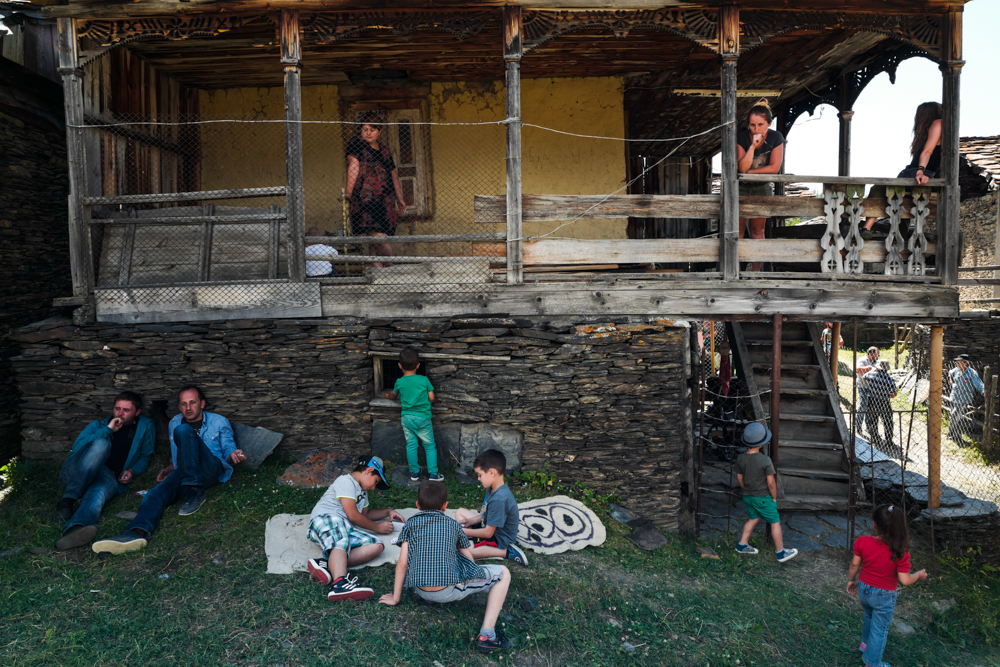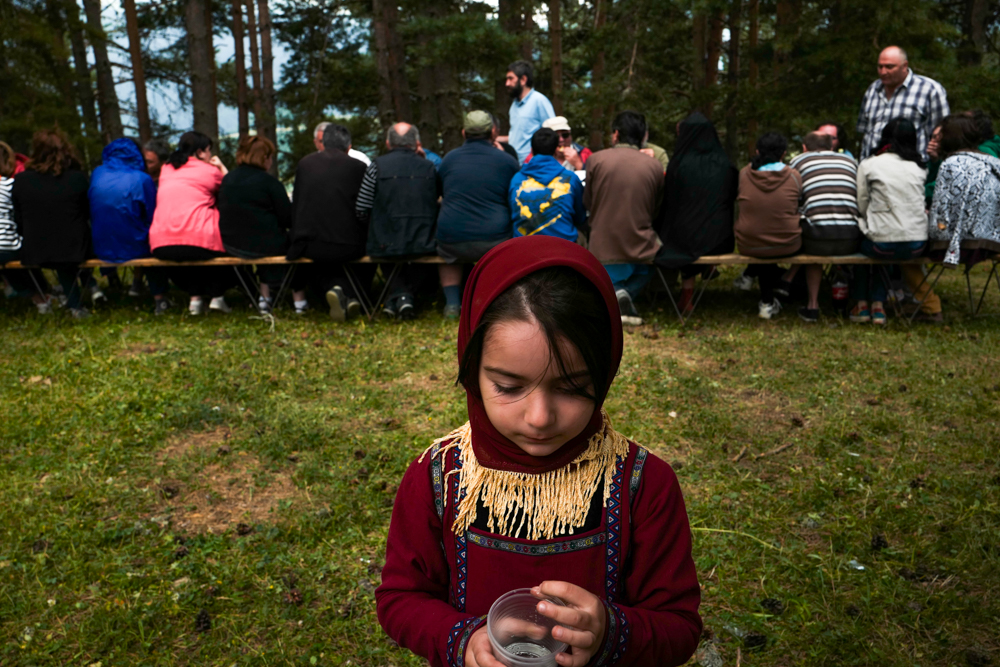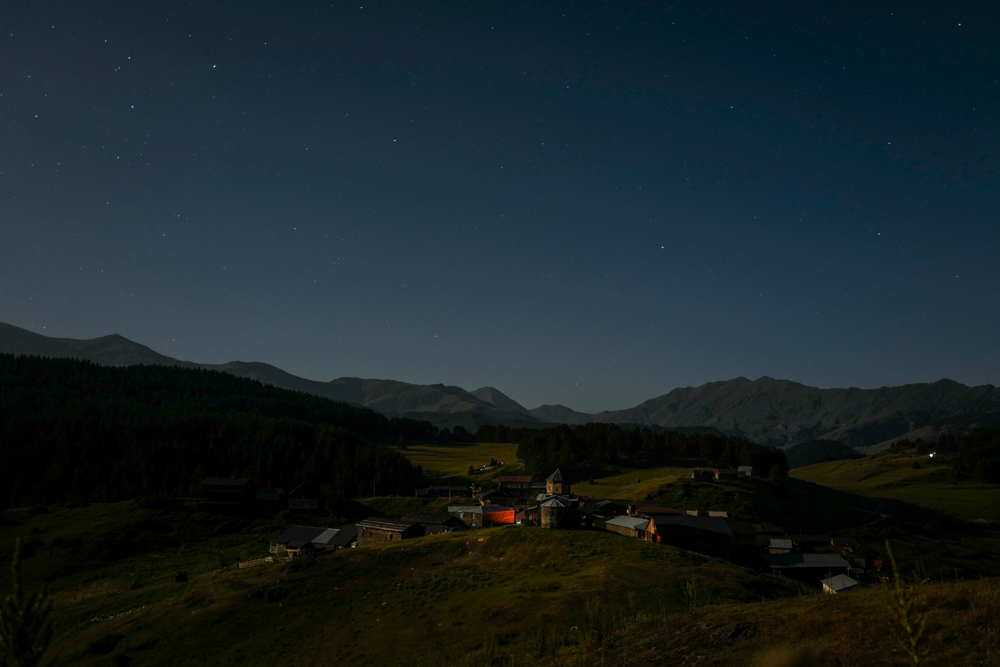Twilight
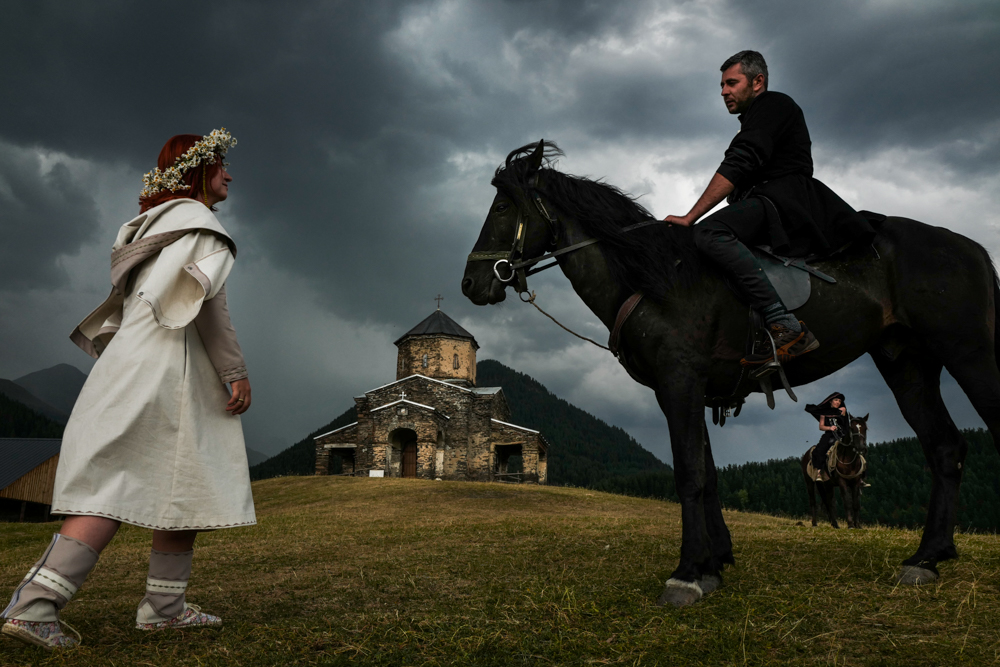
-
PhotographerFulvio Bugani
The ancient traditions and the call of the ancestors are the forces that drive some populations to stay connected to inhospitable places, which they perceive as part of their group identity. The seasonal return to these remote areas, is a return to tradition, a rediscover of their roots and a way to defend their identity against the passing time and modernity. All this happens in Tusheti, an historic region of Georgia. This area is dotted with small remote villages where only few people live nowadays due to the difficult living conditions. The inaccessibility of the land preserved the mysterious atmosphere of the place, which seems not to be touched by modern conveniences: here electricity is a scarce and valuable good as well as running water in the houses. Due to the tough living conditions of this place, a semi-nomadic lifestle has developed. Many Tush families began to move southwards from Tusheti during the first half of the nineteenth century and settled in the low-lying fields of Alvani, at the western end of Kakheti. Nevertheless every summer many of these families still go back with their flocks of sheep high up in the mountains, to the old villages to pay homage to their ancestors and to celebrate their traditions passing them across generations. They fight against the modernization and even literally against invaders from neighboring regions to preserve their unique heritage. The population of the area is called Tushs or Tushetians and it is considered a subgroup of Georgians. Although they are Orthodox Christian, their culture has retained elements of Georgia’s pre-Christian beliefs and pagan practices still persist. Their land is on the northern slopes of the greater Caucasus mountains, bordered by the Russian republics of Chechnya and Dagestan. Only in these area they can celebrate their sacred animists rituals that strengthen the bonds between people, define their roles in the society and consolidate the union between them and nature.
Fulvio Bugani was born in Bologna in 1974. He founded his own studio in 1999 – Foto Image. Bugani has been a freelance professional photographer for over 20 years, working with associations and NGOs. He actively collaborates with MSF (Medecins Sans Frontier) and Amnesty International, for which he has participated in several projects on human rights, illegal immigration and the right to housing. His work has been published in international magazines:TIME, LFI. In 2015 he was awarded at the World Press Photo and in 2016 at the Leica Oskar Barnack Award. He is an international Leica Ambassador.
